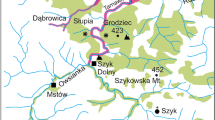Summary
The Greek natural environment shows an extensive diversity of flora and fauna and a significantly high density of important biotopes. This notable ecological wealth is threatened with rapid degradation caused by human activities. Its protection through nature conservation measures and through the control of development projects and activities is obstructed by factors such as the existence of a large number of non-point sources of disturbance which are related to a large number of people, the inefficiencies of State mechanisms, the indifference of local societies with regards to planning procedures and long-term social benefits, and a traditionally indifferent or hostile attitude of countryside people towards nature. A study of the threats against the natural environment shows that the most important of these derive from activities that bring people closer to nature, but which follow a development model that is not sustainable. Such activities are: farming, animal grazing, fishing, tourism, vacation house-building, the opening up of roads, hunting, motorized recreation, etc. Contrary to this, the development of industry and the big enterprises of the tertiary sector appears more compatible with the preservation of a rich natural environment when certain conditions such as effective control, use of modern technology and convergence of business and environmental benefits occur. Consequently, this kind of development shows a better perspective as a sustainable development.
Similar content being viewed by others
References
Bouchy, I. (1989) Metamorphose d'un systeme insulaire sous la pression du tourisme. Conference: ‘Territoires et societies insulaires’, Brest, France.
CORINE. (1991)Corine Biotopes Project. Commission of the European Communities, D.G.XI, Brussels.
Dafis, S. (1979) The state of the country's natural ecosystems. Proceedings Conference: ‘Protection of the Flora, Fauna and Biotopes in Greece’, Hellenic Society for the Protection of Nature, Athens (in Greek).
Douros, G. (1993) The forest roads network in Greece,Fysis, 62, Hellenic Society for the Protection of Nature, Athens (in Greek).
Fantechi, R. and Margaris, N.S. (eds.) (1986)Desertification in Europe. Commission of the European Communities: Reidel Publishing Company.
Gerakis, P.A. and Tsiouris, S.E. (1991) How much the Greek wetlands have changed.Nea Oikologia,80, 22–32 (in Greek).
Hadjibiros, K. (1990) Some particular characteristics of developmental processes in mediterranean coastal ecosystems. Proceedings Symposium: ‘Conservation and management of island and coastal ecosystems’, MEDMARAVIS, Alghero, Italy.
Hadjibiros, K. (1991) Training and research in relation to problems of E.I.A. implementation in GreeceOccasional Paper,27, 115–122, E.I.A. Centre, University of Manchester.
Hadjibiros, K. (1993) A nature data bank as a tool for E.I.A. training of nature conservation interest groups. Proceedings: Workshop on E.I.A. training, Commission of the European Communities, D.G.XI, Vitoria Gasteiz, Spain.
Hadjibiros, K. and Aravantinou, M. (1993) The Greek Natural Environment in Numbers. Proceedings of 3rd Conference: Environmental Science and Technology, University of the Aegean, Mytilini, Greece (in Greek).
Handrinos, G. (1982) On Hunting and Greek Hunters.Oikologia kai Perivallon,4, 72–78 (in Greek).
Hollis, G.E., Gammell, A., Hadjibiros, K. and Papayannis, T. (1989) Review of ACE Projects in Greece. Technical report. Commission of the European Communities, D.G.XI, Brussels.
Hellenic Zoological Society, HZS, and Hellenic Ornithological Society, HOS (1992)The Red Data Book of Threatened Vertebrates of Greece. Hellenic Zoological Society and Hellenic Ornithological Society: Athens (in Greek).
Kiortsis, V. (1979) Greek fauna and the dangers that threaten it. Proceedings: ‘Protection of the Flora, Fauna and Biotopes in Greece’, Hellenic Society for the Protection of Nature, Athens (in Greek).
Kyriou, H. and Sifnaios, N. (1994) Data verification and delimitation of the country's important biotopes. Thesis. National Technical University, Athens (in Greek).
Louloudis, L., Beopoulos, N. and Panagiotou, A. (1993) Agriculture and Environment. In C. Laskaris (ed).Environmental Crisis: Methodological and Scientific Approaches. Athens: Synchroni Epochi.
Ministry of Agriculture (1992)Results of the First National Survey of Forests, Forest Service: Athens (in Greek).
Ministry of Agriculture (1994)Report of Activities of the Forest Service for 1993. Forest Service: Athens (in Greek).
OECD (1983)Environmental Policies in Greece. Organisation for Economic Cooperation and Development: Paris.
Ramade, F. (1974)Elements d'Ecologie Appliquee. McGraw Hill: New York.
Research Group (1986)Ramsar Convention Wetlands Delimitation Project, Ten volumes, Ministry of Environment, Regional Planning and Public Works: Athens (in Greek).
Research Group (1993)Creation d'une Banque de Donnees pour l'Environnement Naturel de Grece. Rapport Final Universite National Technique et Commission des Communautes Europeennes D.G.XI: Athens.
Sfikas, G. and Hatjirvassanis, V. (1994)The most important Greek biotopes. Hellenic Society for the Protection of Nature: Athens (in Greek).
Stogiannis, V. (1993) Greek Fishing: on the brink of the abyss,Nea Oikologia,105, 35–37 (in Greek).
Study Group (1990)Project for the Creation of a Nature Park in the Kandili Region of Evvia, Greece. Society for Ecology and Development, Agenzia per la Ricerca, la Documentazione e l'Educazione Ambientale and Commission of the European Communities: Athens.
Study Group (1993)Necessary Actions for the Protection of Greek Environment, Two volumes, Technical Chamber of Greece and Commission of the European Communities, D.G.XVI: Athens.
World Commission on Environment and Development WCED (1987)Our Common Future, World Commission on Environment and Development: Geneva.
Author information
Authors and Affiliations
Additional information
Kimon Hadjibiros is a physicist-cum-ecologist working at the National Technical University of Athens. This paper, like others in Volume 15, No. 4 ofThe Environmentalist, was presented at the Global Forum '94 Academic Conference ‘Towards a Sustainable Future: Promoting Sustainable Development’, Manchester, UK, in June, 1994.
Rights and permissions
About this article
Cite this article
Hadjibiros, K. Sustainable development in a country with extensive presence of valuable biotopes. Environmentalist 16, 3–8 (1996). https://doi.org/10.1007/BF01325609
Issue Date:
DOI: https://doi.org/10.1007/BF01325609




